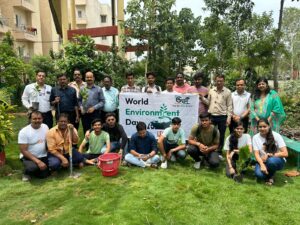Human Rights Council – Sixth session of the Forum on Minority Issues
“Beyond freedom of religion or belief: Guaranteeing the rights of religious minorities”
26 and 27 November 2013
@Room XX of the Palais des Nations, Geneva, Switzerland
IARF’s six-person delegation included our two Zurich-based colleagues and two delegates from our partner organization based in Brussels (Human Rights Without Frontiers International), and spoke in four agenda items:
a). legal framework of protection of religious minorities;
b). protection of existence and prevention of violence against religious minorities;
c). promotion and protection of identity of religious minorities;
d). the promotion of constructive interfaith dialogue, consultation and exchange.
Oral Interventions:
- 26th
On the legal framework for the protection of religious minorities
Speaker: M. Jean-Claude Cantieni, president of Libref, IARF’s member group in Switzerland, using the example of Libref, and the Swiss legal framework as a good practice, although with specific recommendations as the Swiss legal framework is far from perfect.
IARF Oral Statement Forum on Minority Issues (PDF, 1 page, French-language) - 27th
On protection and prevention of violence against religious minorities and protection of identity of religious minorities.
Speaker: Arben Sulejmani, representative of IARF member group the Bektashi Order of Macedonia, on the situation of the Bektashi religious minority.
IARF Oral Statement on Macedonia (PDF 1 page) - Good Practice session: Constructive Interfaith Dialogue and Exchange
South Asia (Agenda Item 4)
________________
From the OHCHR’s pre-meeting Draft recommendations on guaranteeing the rights of religious minorities:
H. Prevention of violence and protection of the security of religious minorities
49. States have the responsibility to protect human rights and security for all and to create conditions of peace and stability. They must act appropriately and rapidly to protect the rights and security of persons belonging to religious minorities under threat and prosecute anyone who commits, supports or incites violence against them.
50. Preventive measures should be taken against acts of violence directed against persons or religious sites belonging to religious minorities. In situations of extreme risk, appropriate preventive measures should be rapidly deployed by law enforcement bodies and adapted as the situation evolves. States should take all necessary measures to ensure protection for and prevent attacks and violence against advocates for religious minorities’ rights and those who fulfil leadership or community roles and may be at greater risk of violence.
51. States should ensure that all cases of intimidation, harassment, persecution and other serious human rights violations against religious minorities are thoroughly and immediately investigated and perpetrators punished. Appropriate measures, including legal assistance, should be made available to religious minority groups as required in order to document cases of violence or intimidation and effectively prosecute those who commit attacks on them and communal violence.
52. In conflict situations, special attention must be paid to the situation and security of persons belonging to vulnerable religious minorities. Efforts should be made to fully reintegrate with dignity religious communities that have been displaced during conflict to their places of origin, allow access to all places of worship and other religious sites, and ensure protection of religious minorities present on the territory. Religious minorities from all religions within a State should be actively involved, including at the earliest stages and throughout peacebuilding initiatives and reconciliation processes.
I. Interfaith dialogue, consultation and exchange
53. In multi-faith societies, efforts to build a climate of trust, understanding, acceptance and interfaith cooperation and exchange should be established. Such measures benefit the whole of society and are essential elements of good governance.
54. States should consider creating or facilitating national and regional institutions aimed at fostering interfaith dialogue and projects promoting a culture of understanding and a spirit of acceptance. The establishment of formal and informal national and local institutions and platforms for dialogue where representatives of religious groups meet regularly to discuss issues of common concerns should be encouraged.
55. The potential of religious and political leaders in helping to build tolerant, inclusive societies and initiate and support such efforts and activities should be harnessed. Such influential community and national figures should be at the forefront of dialogue and inter-community cohesion efforts, as well as in publicly condemning any advocacy of religious hatred, discrimination, hostility or violence.
56. Initiatives relating to interreligious and interfaith dialogues should be as inclusive as possible and should be encouraged at the grass-roots level. The participation of women and young people belonging to religious minorities should be particularly encouraged and ensured through active outreach. The use of different channels of communication, such as the media, arts and local institutions, to foster interfaith dialogue and exchange should also be promoted.





